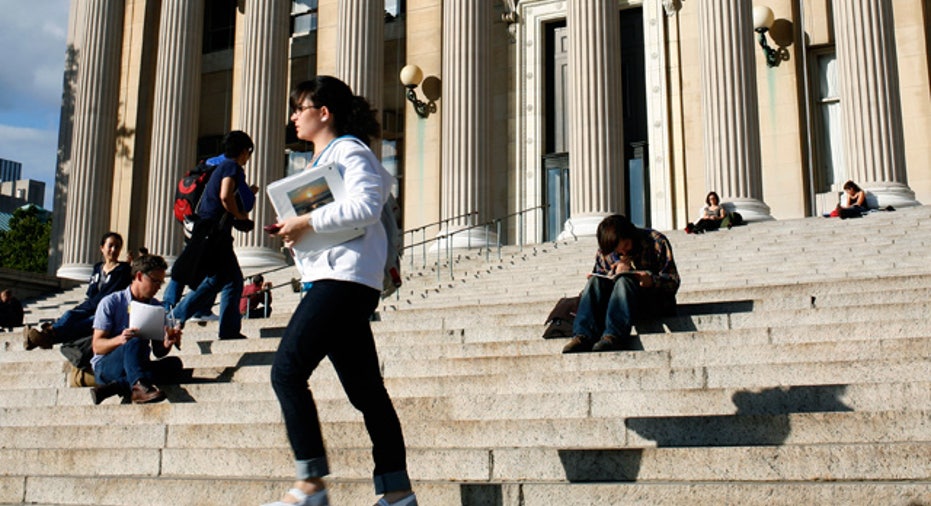Avoid These College Application Mistakes

As if applying to college wasn’t stressful enough, colleges are upping the ante by increasingly encouraging students to apply via early decision.
“More and more students are applying earlier in the fall and therefore it’s putting greater stress on their timeline to do a really effective job,” says Howard Greene, educational consultant and co-author of The Hidden Ivies. “It leaves a lot more room for mistakes or errors or a sloppy job in presenting oneself to college admissions committees.”
Even if you aren’t looking to hit the early deadline, here are six mistakes to avoid on your applications.
Not Double Checking Every Application
It may seem obvious, but students can rush through filling out applications and forget to review their final applications and often overlook small, but significant details.
“[Students] need to read the application with the merit it deserves--that’s your representation of yourself,” says Dr. Katherine Cohen, college admissions expert and founder of Applywise.com. “All of the hard work you put in to high school the past four years and everything you’ve done comes down to how you present it.”
After filling out several applications, things tend to blur together, so Greene recommends asking for a second pair of eyes to review applications.
“Have somebody you trust read over your application, not to change your content, not to rewrite anything, but just a second pair of eyes that are fresh to your application to look for typos, spelling errors, even sometimes to spot some checklists that were not completed,” he says.
Abusing the Common Application
More than 400 colleges are using the common application, a standard application form featuring slight modifications between schools, which can make the filling-out process a little too routine.
“One mistake students make is adopting a once-size-fits-all application [mindset],” says Jeremy Hyman, co-author of The Secrets of College Success.
The supplemental section of the common application is where students need to pay close attention. That section asks questions that are specific to what a particular college wants to know beyond the universal information.
“If kids aren’t careful, they will miss filling out the supplements and will be automatically disqualified from being considered,” says Greene.
Asking the Wrong Teacher for a Recommendation
Letters of recommendation can really make or break a student’s application, so choose your references wisely.
Don’t choose someone who is not going to be able to distinguish you from other students.
“You don’t want to just go to the teacher who gives you an easy ‘A,’ advices Cohen. “[Ask] that teacher who knows you the best; you want that teacher to really be able to vouch who are as a person.”
And don’t wait to the last minute to ask for a recommendation, these letters take time if you want a good one.
Greene suggests asking a teacher for a reference letter at least a month before the submission deadline.
Not Waiving Your Right to See Your File
The common application includes a statute called the Buckley Amendment, which, among other things, gives students the right to review their education records--including teacher and counselor letters of recommendation.
“We always tell students, unless you think you’ve got something to hide which we hope you don’t, check that ‘yes,’ you waive your right to see the confidential information in your file,” says Greene.
The experts say that although it may be tempting to look at what your letters divulge, it could potentially affect your chances of admission.
“Colleges want to know that this is an unbiased letter of recommendation, that this is the real recommendation from the teacher that is frank and candid,” says Cohen. “I think a teacher is going to feel more like they can be frank and candid if they’re just sending it directly to the school and no one else is going to see it.”
Trying Too Hard, Little on Essay
Although the experts say that you shouldn’t come across as stuffy in essays, you also should avoid sounding childish in an essay.
“I think colleges are trying to imagine what it would be like to have this student at our university--what they’re asking you to do in my opinion is to write as a college student,” says Hyman. “If it comes through that this is an immature high school student, it may be too trite or too ordinary.”
Use the essay to demonstrate that you are a multifaceted individual with interesting ideas. Help the admissions office see that you would be a great candidate for their university.
“You want to take a look at all of the opportunities you have to write and see what can I show off about myself, what different side can I show through my essay and make sure that you’re not being redundant,” says Cohen. “Show yourself as a complex person.”
Listing Every Single Club Just to Fill Space
The common application provides 12 spaces for students to list extracurricular activities and involvements. It may seem like a lot of spaces, but Greene says not to feel pressured to have the “perfect” activity or club for each line.
“Nobody in their right mind and especially in high school, can commit quality time, effort, and leadership to a gazillion activities,” he says. “Colleges would far rather see several types of deep commitments--that’s what they really are hoping for.”
The common application includes a short writing section where you can indicate which activity is the most meaningful to you--use it.
“We tell students you can create a little bit more of a detailed resume there and upload it in “additional information” if you really can’t get all of the descriptions about what you’re doing into that short line on the activities section,” says Cohen.



















